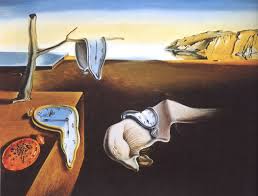A beautiful message from The Interfaith Music Project of Philadelphia
Shabbat Shalom
A beautiful message from The Interfaith Music Project of Philadelphia
Shabbat Shalom
I found this lovely rendition of the song Yonati from Central Synagogue recorded December 17, 2017.
A soulful song, Yonati, My dove is a beautiful way to welcome Shabbat. The English translation is below.
Shabbat Shalom.
Yonati
O, my dove, in the crevice of the rock,
Concealed by the mountain’s face,
Show me your countenance,
Let me hear your voice;
For your voice is pleasant,
And your countenance charming.
This evening is Shabbat Shuva, the Shabbat between Rosh HaShanah and Yom Kippur. May your High Holidays be meaningful and 5778 be a year of health and blessings.
L’ShanahTovau’metukah!
Shabbat Shalom
Eig8th Day came out with this lovely tune about Shabbat, It’s Shabbos Now. Catchy and upbeat, a lovely melody to bring us to the end of another tumultuous week.
Shabbat Shalom!
This beautiful rendition of Hashkivenu by Craig Taubman is a soulful way to create space for Shabbat. It is part of the evening service asking for the Divine’s protection, holding us in the loving sheltering wings of Her peace.
Shabbat Shalom
Shalom Aleichem- Peace be with you, our traditional liturgical greeting of Shabbat dating back to the mystics of Tzfat (Safed) from the 16th or 17th century.
The story goes that two angels accompanied us on our way back home from the synagogue for Shabbat Dinner on Friday night. If the home was ready for Shabbat, the good angel blessed that next Shabbat it should also be so, and the bad angel would respond “Amen”. If the house was not ready for Shabbat, the roles were reversed.
Rabbi Rayzel Raphael Rocks in Shabbat with Psalm 95
Enjoy and Shabbat Shalom
Ana Becoach, or Ana Becoaj, is a Kabbalistic prayer invoking the power of the Divine Name. The prayer is seven lines of six words each, the first letter of each word spelling the 42 letter name of the Almighty. Written in the second century by the Kabbalist Rabbi Nehonia. It is traditionally sung before Lecha Dodi during Kabbalat Shabbat.
The phrase “untie the knot” may refer to exile in both its physical and spiritual sense. As we enter Shabbat we hope to begin experiencing its expansiveness. The plea reflects the mystical view that the forces of judgment, constriction, and negativity should not have power or authority on Shabbat. ( Siddur Lev Shalem, p. 22)
Shabbat Shalom

We turn back the clock this weekend. The extra one hour of sleep isn’t such a big deal, I thought I would be much more excited if we were turning it back by about 20 years. But that is not the case. In fact, trading the past twenty years for the experiences during that time is not something I would do. I like who I have been becoming (I am still a work in progress) and the past twenty years have been an integral part of getting here.
Without those twenty, I likely would not be a rabbi nor would I be married to my wife Naomi, to name just two wonderful things that help define me now. The period was not without struggle and real challenges in all aspects of life, but these challenges also helped to shape me into the person that I am today. Today, I wish perhaps that the ground was not so far away when I drop things, or my arms did not have to be so much longer to read things, or that there was more hair to comb. But the blessings I enjoy I wouldn’t trade for any of those (although the hair makes me briefly pause).
So I come to this Shabbat with a sense of gratitude for what I have and I will use that extra hour to catch up on some sleep after a long workweek and a Saturday night spent with my wife.
Shabbat Shalom!
Lo Yaavod- A great music video based on the commentary of Rabbi Obadia by Yaakov Shwekey. A translation of the lyrics is below.
It is a message of brotherhood, love and Klal Yisrael- a great way to start Shabbat.
Shabbat Shalom